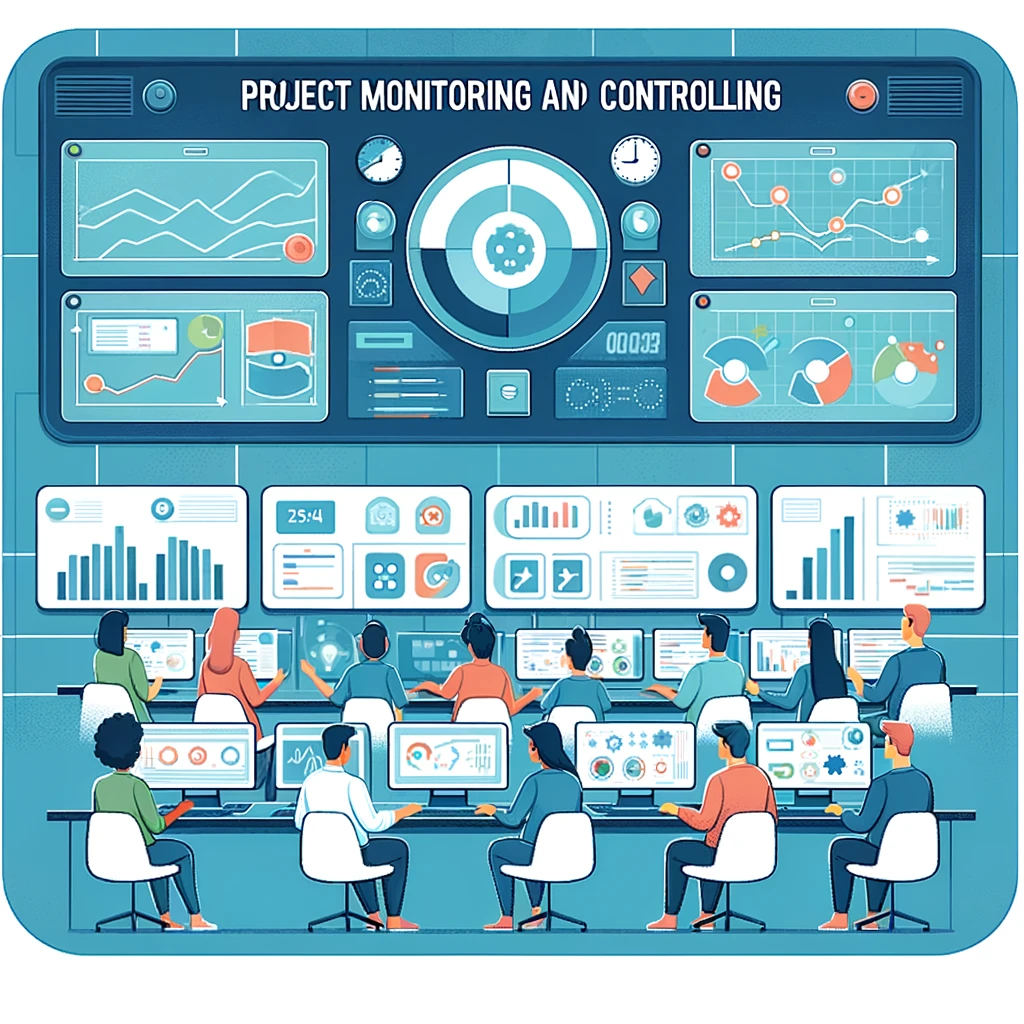Estimated reading time: 5 mins
Embarking on a career as a project manager is an exciting and challenging journey that opens doors to diverse opportunities across various industries. This role is crucial in shaping the success of projects by overseeing their planning, execution, and closure. A project manager’s responsibilities extend beyond mere task coordination; they are the linchpin that holds together the entire project lifecycle, ensuring that objectives are met efficiently and effectively. What are the essentials of how to become a project manager?

Project management is a dynamic field that requires a unique blend of skills, knowledge, and experience. Whether it’s in technology, construction, healthcare, or any other sector, project managers play a pivotal role in bringing projects to fruition. They navigate through complexities, manage resources, lead teams, and communicate with stakeholders to align efforts with the project’s goals. This guide aims to provide an in-depth look at how to become a project manager, detailing the educational paths, skill development, practical experiences, and continuous learning required to excel in this role. By understanding these key aspects, aspiring project managers can prepare themselves for a fulfilling career that is both challenging and rewarding.
Understanding the Role of How to Become a Project Manager
The role of a project manager is multifaceted and pivotal for the success of any project. A project manager is essentially the linchpin of a project, responsible for guiding it from inception to completion. Their duties encompass a broad spectrum of activities, which includes, but is not limited to, the following:


- Initiating: In this phase, the project manager defines the project at a broad level. This is where they identify the project goals, the main stakeholders, and the overarching vision for the project.
- Planning: Arguably the most critical phase, this involves creating a project roadmap. The manager must define clear, achievable objectives, establish the project timeline, and allocate resources effectively. They need to identify all the tasks needed to achieve the project goals and sequence them efficiently.
- Executing: This stage involves building the deliverables and managing the project team. The project manager must ensure that the team is working in sync, and the project is progressing as planned.
- Monitoring and Controlling: Concurrent with the execution phase, monitoring involves tracking the project’s performance and making adjustments as necessary. This includes managing changes to the project scope, schedule, and costs.
- Closing: In this final phase, the project manager ensures that all aspects of the project are completed satisfactorily, obtains acceptance from the stakeholders, and formally closes the project.
- Communication: Throughout all these stages, effective communication is crucial. The project manager acts as a bridge between the project team and the stakeholders, providing updates, and managing expectations.
Understanding and mastering these aspects are critical for anyone aspiring to become a successful project manager. This role requires a balance of technical project management skills and soft skills such as leadership, communication, and negotiation.
Step 1: Gain Educational Background
A. Degree in Project Management or Related Field
Although not always mandatory, having a bachelor’s degree in project management, business management, or a related field can be beneficial. Some popular degree choices include:
- Business Administration
- Engineering
- Computer Science
- Information Technology
B. Specialized Courses and Certifications


Many institutions offer specialized courses in project management. Pursuing these can significantly enhance your understanding and skills. Notable certifications include:
- Project Management Professional (PMP): Offered by the Project Management Institute (PMI), it’s one of the most recognized certifications in the field.
- Certified Associate in Project Management (CAPM): Also offered by PMI, ideal for those starting their career in project management.
- PRINCE2: Widely recognized in the UK and Europe, this certification focuses on process-driven project management.
Step 2: Develop Essential Skills
A successful project manager needs a blend of technical and soft skills:
A. Technical Skills in How to Become a Project Manager
- Project Planning and Scheduling: Knowledge of tools like Gantt charts, PERT diagrams, and critical path method.
- Budgeting and Cost Management: Ability to manage project finances.
- Risk Management: Identifying and mitigating project risks.
- Quality Management: Ensuring project deliverables meet the desired quality.
B. Soft Skills in How to Become a Project Manager
- Leadership: Guiding and inspiring the project team.
- Communication: Effective in conveying ideas and listening to team members and stakeholders.
- Problem-solving: Finding solutions to obstacles that arise during the project.
- Time Management: Juggling various tasks and deadlines efficiently.
Step 3: Gain Practical Experience
A. Entry-Level Positions when Learning How to Become a Project Manager
Start in an entry-level position such as a project coordinator or assistant project manager. This will give you practical experience in project environments.
B. Volunteer or Internship Opportunities
Seek opportunities to manage small projects or parts of larger projects. Non-profit organizations often need volunteers to manage events or initiatives.


Step 4: Networking and Professional Development
A. Join Professional Organizations
Organizations like PMI offer networking opportunities, resources, and information about the latest trends in project management.
B. Attend Workshops and Seminars
These can provide insights into advanced project management techniques and industry trends.
C. Continuous Learning with How to Become a Project Manager
Stay updated with the latest project management tools, technologies, and methodologies.
Step 5: Pursue Advanced Opportunities
A. Specialize in an Industry
Consider specializing in an industry where you have experience or interest, such as IT, construction, or healthcare.
B. Seek Higher Positions
Aim for roles like senior project manager, program manager, or project director.
C. Consider Project Management Consultancy
Experienced project managers may choose to work as consultants, offering their expertise to various organizations.
Challenges and Solutions in Project Management


A. Dealing with Uncertainty
Projects often face unforeseen challenges. Develop contingency plans and maintain flexibility.
B. Managing Team Dynamics
Understand team members’ strengths and weaknesses. Encourage open communication and resolve conflicts swiftly.
C. Keeping Up with Technology
Regularly update your knowledge about new project management software and tools.
D. Balancing Stakeholder Interests
Understand the needs and expectations of different stakeholders. Regular communication and negotiation skills are key.
Future of How to Become a Project Manager
The field of project management is evolving with advancements in technology and changes in business practices. Emerging trends include:
- Agile and Lean Methodologies: Increasingly preferred in software development and other industries.
- Remote and Global Teams: Managing virtual teams across different time zones and cultures.
- Artificial Intelligence and Automation: Using AI for data analysis and decision-making.
Concluding How to Become a Project Manager


Becoming a successful project manager requires a combination of education, skill development, practical experience, and continuous learning. It’s a rewarding career path that offers opportunities for growth and challenges. By understanding the role, gaining the necessary skills and qualifications, and staying abreast of industry developments, you can build a successful career in project management.
Whether you are just starting out or looking to advance in the field, remember that project management is as much about leading people as it is about managing tasks and resources. Cultivate your leadership and communication skills, be adaptable, and stay committed to learning and growth. With these qualities, you can become an effective project manager and contribute significantly to the success of any project.
